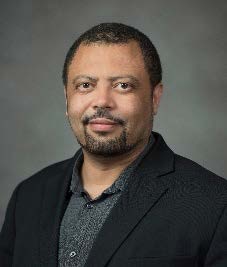Multi-Agent Framework for Control of Complex Transportation Systems
Transportation Center (PSR), UC ITS Statewide Transportation Research Program (STRP), UC ITS Resilient and
Innovative Mobility Initiative (RIMI), and NSF Smart and Connected Communities Project (NSF S&CC).

Virginia Tech
Transportation Infrastructure and Systems Engineering
Motivated by the need to manage a complex and evolving intelligent transportation system in a collaborative framework, we describe five components of multi-agent modeling paradigm with several implementation examples from the VT-SCORES research lab at Virginia Tech. The research components discussed range from driver behavior, car-following models, adaptive control, and connected vehicles applications. We will show examples of extracting driver behavior from large datasets, modeling evolving system behavior with intelligent agents, integration of state estimation and communication frameworks in a connected vehicles environment, and the ramifications of neglecting learning in modeling. The presented agent-based framework is intermodal, and can incorporate performance characteristics and needs of different users (cars, trucks, busses, pedestrians, and bikes). The presentation will also touch on the latest innovations at the VT-SCORES lab and how it can help address evolving and complex transportation problems.
Dr. Monty Abbas is a Professor in the Transportation Infrastructure and Systems Engineering at Virginia Tech. He holds a PhD in Civil Engineering from Purdue University (2001). Dr. Abbas developed and implemented several algorithms and systems in his areas of interest, including the Platoon Identification and Accommodation system (PIA), the Pattern Identification Logic for Offset Tuning (PILOT 05), the Supervisory Control Intelligent Adaptive Module (SCIAM), the Cabinetin-the-loop (CabITL) simulation platform, the Intelligent Multi Objective Control Algorithms (I-MOCA), the Traffic Responsive Iterative Urban-Control Model for Pattern-matching and Hypercube Optimal Parameters Setup (TRIUMPH OPS), the Multi Attribute Decision-making Optimizer for Next-generation Network-upgrade and Assessment (MADONNA), the Safety and Mobility Agent-based Reinforcement-learning Traffic Simulation Add-on Module (SMART SAM), and the Broad Area-wide and Distance-wise Agent-based Signal-optimization System (BADASS). He was also one of the key developers of the dilemma zone protection Detection Control System (D-CS) that was selected as one of the seven top
research innovations and findings in the state of Texas for the year 2002. He is a recipient of the Dean’s Award for Excellence in Service, ICAT Creativity and Innovation Day Process Award for the Traffic SONATA project, Best Paper Award, Western Decision Sciences Institute (WDSI) 2018 Conference, Oak Ridge National Lab Associated niversities (ORAU) Ralf E. Powe Junior Faculty Enhancement Award and the G. V. Loganathan Faculty Achievement Award for Excellence in Civil Engineering Education. He is also a recipient of the TTI/Trinity New Researcher Award for his significant contributions to the field of Intelligent Transportation Systems and Traffic Operations.